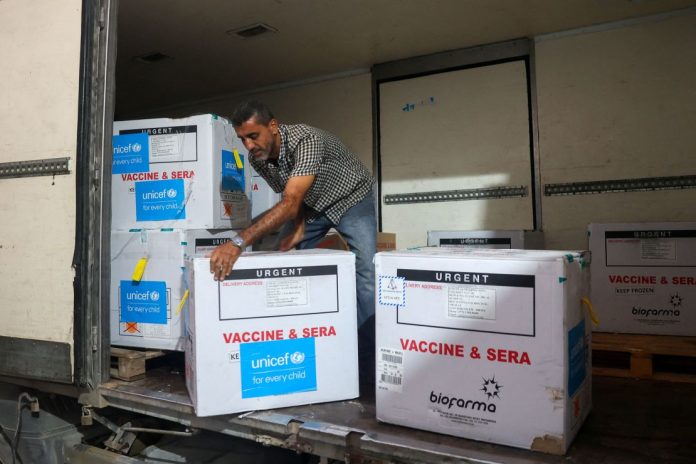On Friday, the World Health Organisation (WHO) chief stated the agreed period for the polio vaccination campaign in the Gaza Strip is probably insufficient to achieve adequate coverage.
Due to insecurity, damage to roads and infrastructure, and population movement and displacement, three days in each area is unlikely to be enough to achieve adequate coverage, Tedros Adhanom Ghebreyesus said at a press conference, adding that the period could be extended by one day if necessary.
He emphasised that vaccination teams must have protection and the ability to carry out campaigns safely, urging all parties to ensure their protection, along with that of medical facilities and children. Nevertheless, he confirmed that the only solution for safeguarding children’s health in Gaza is a ceasefire.
Earlier, the WHO representative in the occupied Palestinian territories, Rik Peeperkorn, stated that 1.26 million doses of vaccines and 500 vaccine carriers have arrived to Gaza, while an additional 400,000 doses of vaccine will come shortly.
Over 2,180 healthcare and community workers have received training on vaccination and community outreach related to the campaign. The polio vaccination initiative will administer two drops of the new oral vaccine for polio type 2 (nOPV2) to more than 640,000 children aged under 10, according to him.
“At least 90% vaccination coverage during each round of the campaign is needed to stop the outbreak and prevent the international spread of polio,” he said.
The parties are to cease fire between 6:00 a.m. and 3:00 p.m. Humanitarian pauses in each area will last three days and will begin on 1 September. The campaign will start in the central part of Gaza with three daily breaks in fighting, then move to the southern part of Gaza for another three-day pause, and then to the northern part of Gaza.
